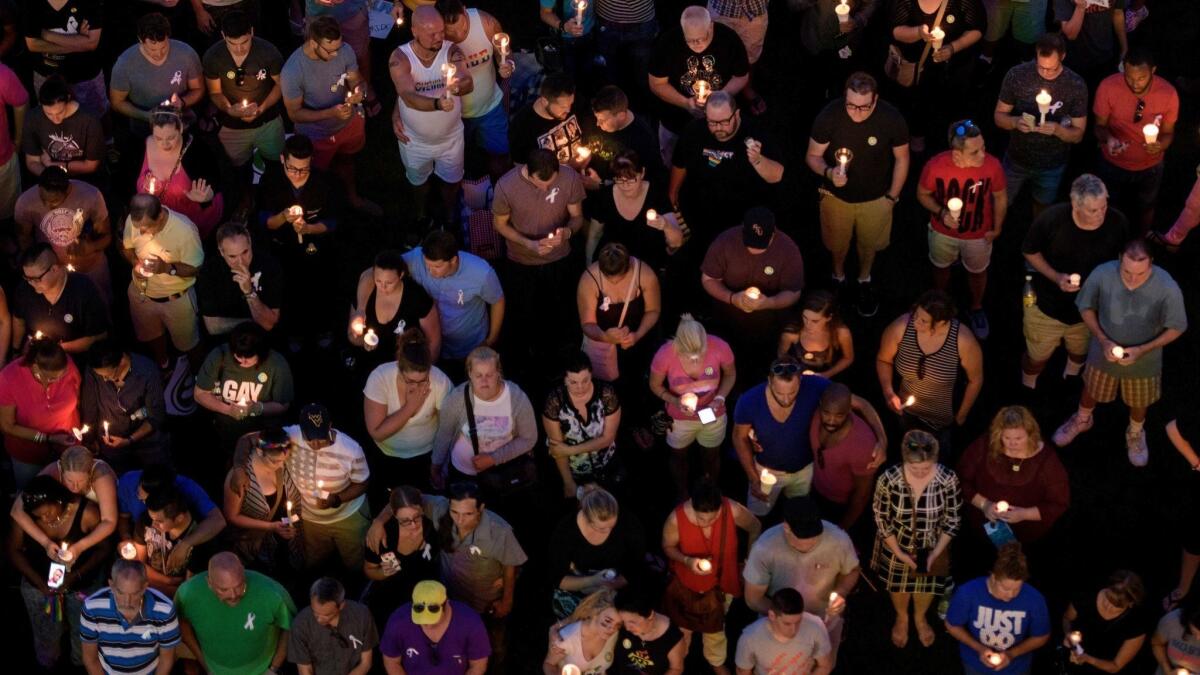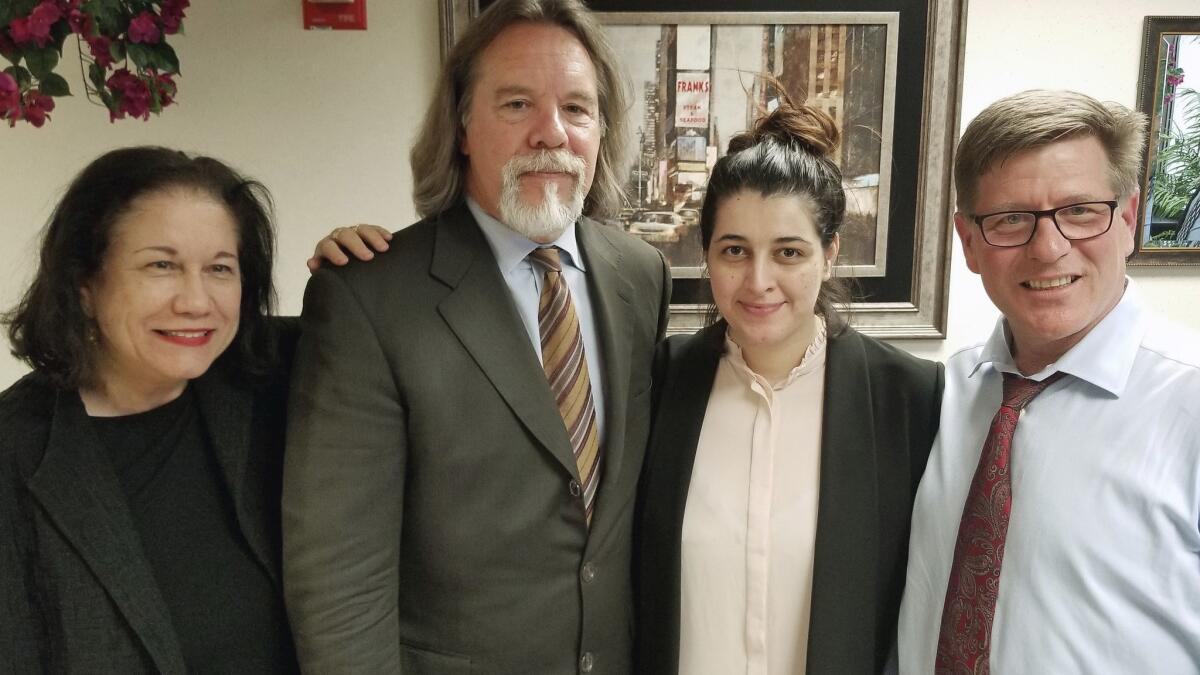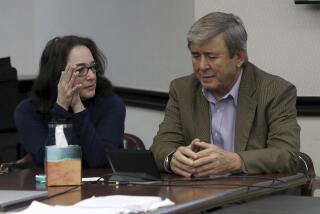Verdict leaves unanswered questions about mass shooting at Pulse nightclub in Florida

Reporting from Orlando â Questions have lingered in Damaris Benitez Torresâ mind since the day she lost her brother, Martin Benitez, in the Pulse nightclub shooting.
âDid they try to rescue him? Did they give him first aid? How much time was he bleeding out before he died?â she asked after the gunmanâs widow, Noor Salman, was acquitted Friday of obstruction of justice and aiding and abetting her husband, Omar Mateen.
Salmanâs trial revealed new details about the attack, which some survivors and loved ones have waited more than a year and a half to hear. But the end of the trial means some questions might never get answered.
âNow we are left with the uncertainty. Itâs worse than before, because with this, I thought we would have some closure for this pain that will never leave us,â Benitez Torres said.
The biggest question is whether her brother could have been saved. Martin Benitez was wearing a watch that monitored his pulse, his sister said. When the family got it back, it read 3:20 a.m.
âWe assume that, more or less, thatâs when he died,â Benitez Torres said. That was just over an hour after the shooting began. âMy brother didnât die instantly. He bled out and I know there was something that they couldâve done to rescue him.â
The trial did reveal some details that investigators knew within days of the June 12, 2016, massacre, but never released to grieving family members or the public: that Mateen had never been near Pulse before the attack; that he likely targeted Disney Springs, where he arrived hours before with a stroller that prosecutors said was meant to hide his Sig Sauer MCX rifle; that his father, Seddique Mateen, was an FBI informant.
The FBI has released few details about the shooting, repeatedly denying requests for information by saying the investigation was still active. But the trial required agents to reveal some information.
Within days of the shooting, FBI Special Agent Richard Fennern testified on March 22, they had gone through Salman and Mateenâs cellphones and determined that neither had ever been to Pulse. Mateen seems to have found the club through a Google search for âdowntown Orlando nightclubâ after walking through Disney Springs the night of June 11 and seeing armed law enforcement officers and security guards, agents said.
Mateenâs cellphone also shows he first headed toward another club, EVE Orlando, but left and went back to Pulse. EVE Orlando is on a busy stretch of Orange Avenue near downtown Orlando, where police officers typically have a heavy presence on weekend nights. That evidence disproved that he was targeting the gay community, a belief held by many after the June 2016 attack.

âThey all took the bullet so it didnât occur somewhere else, so families at Disney didnât get the bullet, so people at EVE didnât get the bullet,â said Christine Leinonen, who lost her son Drew and his boyfriend, Juan Ramon Guerrero. âTo think that they were all shot and were killed, just so randomly.â
She said testimony corroborated what she thought about officersâ actions that night, she said. She watched the video of Mateen committing the massacre and now knows that he appears to have tried to leave the club after he went around the dance floor once, but by then, police had the club surrounded and inadvertently forced him back into the club.
âThe blame is obviously on the killer himself, but I think the cops did a very poor job. So they let my son down, the FBI let my son down, not just him, but everyone else that was there,â Leinonen said.
She said she hoped to hear an analysis of the ballistics at the trial, but that never came.
âDid the killer shoot my son all nine times, or was he shot by a cop?â she asked.
Mayra Alvear, the mother of 25-year-old Amanda Alvear, said she had to gather the courage to go into the courthouse to see the widow of her daughterâs killer.
âI thought I wouldnât have the strength to go. But I went in about three times and what I can say is that she wasnât dumb. She was writing and passing notes, she was active in the case,â she said.
Sonia Cruz, the aunt of Peter Ommy Gonzalez Cruz, said she tried not to keep up with the trial. She did not come to the courthouse. She needed to let her heart heal, she said. But she did catch glimpses of the evidence in news reports â she saw that the couple spent $26,000 on credit cards in the two weeks before the shooting.
She saw video of Mateen going into the club on TV, as well as footage of him walking around Disney Springs. She thought about all the people who could have been killed there, she said.
âI think itâs gonna be more people, more kids, older people. They donât know how to run, they donât know how to react in that situation,â she said. âI think there would be more people in that tragedy.â
Lotan and Ocasio write for the Orlando Sentinel.
More to Read
Sign up for Essential California
The most important California stories and recommendations in your inbox every morning.
You may occasionally receive promotional content from the Los Angeles Times.










